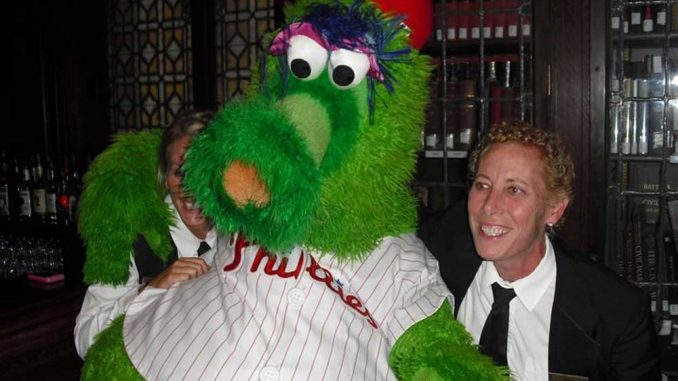
From serving Mel Gibson and friends to reopening bars for late night parties with Harry Kalas, bartender Miki Neuman has seen her fair share of interesting experiences during her almost 30 years in the industry.
The University of Pennsylvania alumna’s connection to Temple is evident: her father and brother both have taught classes and her nieces have both studied at the university.
Neuman currently works at The Union League of Philadelphia, but she has also worked in the Rittenhouse Hotel and other establishments throughout the city.
The Temple News: How did you start bartending? What drew you to it?
Miki Neuman: It’s good money. I started as a bus person, and I got a job at a restaurant. My dad had a friend who was his patient who was staffing up a restaurant and I was like 18 years old looking for a job so he gave me a job. And it’s interesting because I actually bartended for his son’s wedding last year…just by coincidence. It was pretty cool.
TTN: So you work at The Union League of Philadelphia. What’s it like working there compared to other places you’ve worked?
MN: It’s a little bit different, because for a long time I worked in bars in restaurants in high school and college, and then after I got out of college I migrated over to the hotel industry, which is great, because it’s a more professional environment. They treat you better, and it’s just a better class of people that you’re working with. Then I went to [ The Union League], which functions as a hotel, but it’s actually a private club. When I worked at the Rittenhouse Hotel, we also had condominiums there, so we had a lot of regulars there, which would be the equivalent to what we have as members [at The Union League], but during the week I’m almost always working with members who are the same faces all the time.
TTN: Is there a good mix of people, or is it a bunch of old, white guys?
MN: It’s very mixed. That’s an old perception of the league…We have a reputation of being a club for old, white, Republican men, and it’s so not true. It’s been a good 30 or 40 years since they started accepting minorities and women as members, and our outgoing president was a woman – first one, but still. I mean, we’re there. The interesting thing about it is it’s not because people have been more liberal, it’s really more a question of survival in the industry.
TTN: What’s the craziest thing that’s ever happened while you were bartending?
MN: I can say one really odd thing was that the first wedding I worked at The Union League, the bride’s uncle dropped dead of a heart attack on the dance floor…We were pretty shook up, and the people at the wedding were so traumatized that they got so drunk.
TTN: Because you work in Philadelphia, have you ever been surprised to come across any famous people sitting at your bar?
MN: Not really surprised, but I did get a lot of celebrities at my bar at the Rittenhouse Hotel. There was this time – this was the most surreal thing that ever happened to me while bartending. Norman Lear, the producer, had bought one of the original copies of the Declaration of Independence, so he put together this whole all-star cast of celebrities to read from the Declaration on the steps of the National Constitution Center when it first opened, and they were all staying in my hotel. The leading person, the director, that worked on it with [Lear] was Michael Douglas, and part of that whole crew was Antonio Banderas, Mel Gibson, Kevin Spacey, Winona Ryder, maybe five others, I can’t remember who they all were, all showed up in my bar at the same time. Joaquin Phoenix was there, but he was one that I saw fairly often, and Mel Gibson lived in the hotel for a while, so he came and sat at my bar every Tuesday night for five months.
TTN: Did you interact with him a lot, or did he prefer to be left alone?
MN: I did talk to him a lot. And he’s really not a bright guy and surprisingly [does not have] really good verbal skills, but he reads from scripts. But that was crazy that one night, because there were at least 10 A-list celebrities sitting in or on the first row of tables by my bar…that doesn’t happen in Philadelphia.
TTN: What’s one thing that you have learned from being a bartender so long?
MN: The thing that you get most from it is being able to tolerate a lot of really annoying stuff without losing your patience or losing your cool, because if you do lose your patience…you’re going to lose your job…I think it’s been good for me…in my property management. It helps me be able to tolerate a difficult tenant or a difficult situation with a tenant, or just dealing with people in general. I can’t tell you how many times I’m working in a meeting, say it’s a real estate group or a bunch of lawyers or a bunch of doctors, and they’ll start talking to me and they’ll say, “I was a bartender in college and grad school, and I took a lot away from that. I think it really helped me deal with people better.” But I think most lawyers forget that really quickly.
TJ Creedon can be reached at tcreedon@temple.edu.


Hey, Miki, great to see your interview about bartending. Sounds pretty cool.
Love, Willy Hardee